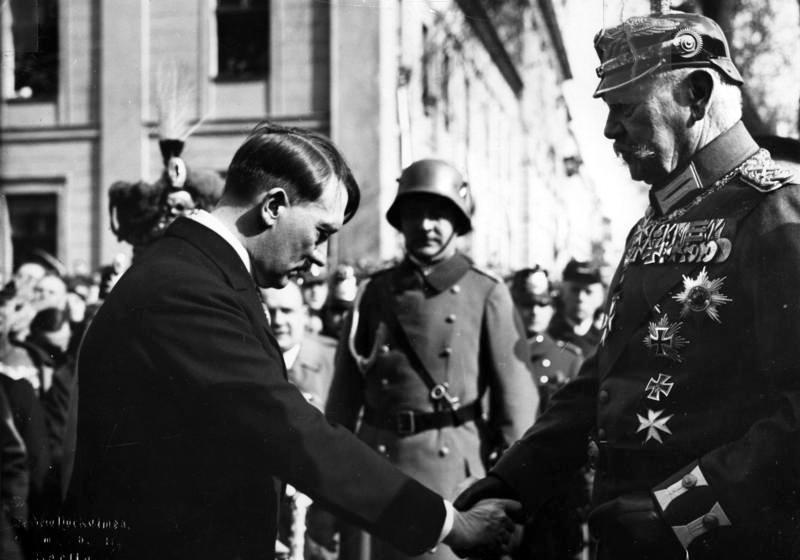By all accounts, the Weimar Republic, as Germany was known from 1918 until the Nazi regime came into power, was not a country of peaceable living where great fortunes could be amassed.
Upon the cessation of fighting World War I in November 1918, the German people rose to overthrow the monarchy in favour of a parliamentary republic.
Once it was established, life did not get easier for German (or Weimar) citizens: a lack of work, food, and goods, coupled with hyperinflation, led to grave social unrest.
In addition to that, the country had no real political direction or leadership.
Furthermore, distaste for the terms of the Treaty of Versailles fuelled resentment for the military capitulation in 1918. It led to right-wing solid sentiment: the perfect stage setting for a vibrant, ambitious, relatively unknown political entity – Adolf Hitler.
Yes, the stage was set, but it needed lighting.
The Great Depression provided megawatts of illumination on the desperate plight of people experiencing poverty, the cold and the hungry, the seeming prosperity of foreigners at the expense of actual Germans, and the general lack of political direction and industry throughout the nation.
We now pull back the curtain to reveal the rise of the Third Reich, how it went from serving the people to serving an ideology, its horrors and its downfall.
| Timeline of Hitler's Rise to Power |
|---|
| September 1919: Hitler becomes a member of the Socialist party. |
| July 1921: Hitler declares himself Fuhrer after winning the leadership position of the Socialist party. |
| 1929-30: the Great Depression takes its toll; support for the Nazi party grows exponentially. |
| January 1933: Hitler is appointed Chancellor of Germany. |
| March 1933: The Enabling Act allows Hitler to make laws independent of the country's governing body. |
| August 1934: Hitler declares himself President as well as Chancellor upon the death of the German President. |
| November 1938: Kristallnacht; the looting and burning of Jewish shops. The takeover is complete. |

Seeding the Third Reich
-
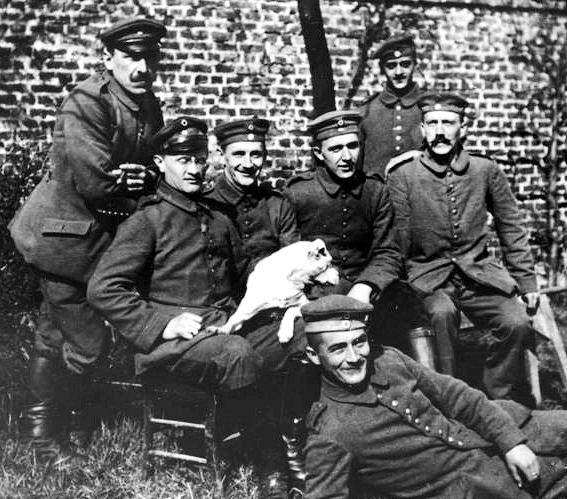
Who would believe this minimally educated soldier with no ambition and a full moustache would try to take over the world? Source: Wikipedia - Hitler realised conditions were right for a coup, but he correctly intuited that it should be fashioned with a velvet glove rather than an iron hammer.
This strategy was quite unlike his failed attempt at a takeover in 1924 that led to his imprisonment. More on that in a moment...
While nobody could ever accuse that autocratic leader of addressing the people in dulcet tones, he was an expert at appeasement by implementing badly-needed social and economic programmes, which brought a time of productivity and relative social harmony to the country.
In a move that American President Roosevelt seemed to emulate in his New Deal, German economic stabilisation rolled out in three phases:
- Public works: people were put to work rebuilding the country – hospitals, schools, and roads
- Rearmament was the single most significant economic driver of the time
- National Labour Service, a six-month indoctrination into Hitler's ideology, required every young male to participate, after which they would be drafted for compulsory military service.
With these three programmes, Hitler had cleverly addressed every cause of civilian unrest, including nationalist pride and anger over the Treaty of Versailles terms, unlike Napoleon, who possessed similar grandeur visions and lost the Battle of Waterloo.
He aimed to make Germany an autarky – a nation utterly reliant on its resources and materials and no trade with other countries.
He did fail in that aim, but he was wildly successful in others. He was not wholly trusted, though.
As the appointed leader of the German Workers' Party, in 1923, he attempted a coup to seize power in the southern city of Munich. Known as the Beer Hall Putsch, it saw around 2,000 Nazis confront a police cordon surrounding city hall.
The ensuing battle left 16 Nazis dead and Hitler wounded. He fled to the countryside to avoid capture but was caught two days later and charged with treason.
That is why, for all of his fiery speeches and impassioned rhetoric, President von Hindenburg only reluctantly appointed Hitler as Chancellor of Germany. Herr von Hindenburg felt someone should keep an eye on Hitler lest the upstart attempt another treasonous move.
That caution was in vain, seeing as, shortly afterwards, the Cabinet signed the Enabling Act into law, giving Herr Hitler the power to enact laws without the involvement of the Reichstag – the governing body.
Between that amendment to the Weimar Constitution and the Reichstag Fire Decree, which transferred state powers to the Reich government –Herr Hitler gained complete and autonomous control of the country.
By 1933, Germany had become a dictatorship.
Discover also how the Russian Revolution put the Soviet Union in the hands of another autocratic leader...
Evaluating the Impact of Nazi Germany
Assessing the severity of Nazi Germany's impact is a solemn task. While some members of the Nazi party experienced privileges and rights, it's crucial to remember that this was built upon the suffering of countless others. For those who did not conform to the Nazi ideology or dared to resist, Nazi Germany represented an alarming and harrowing period.
It's important to acknowledge that Adolf Hitler's rise to power was marked by political cunning rather than genuine popular support. Rather than relying on conventional election campaigns to secure a majority vote, he employed unorthodox methods to position himself as the dominant figure in the Reichstag.
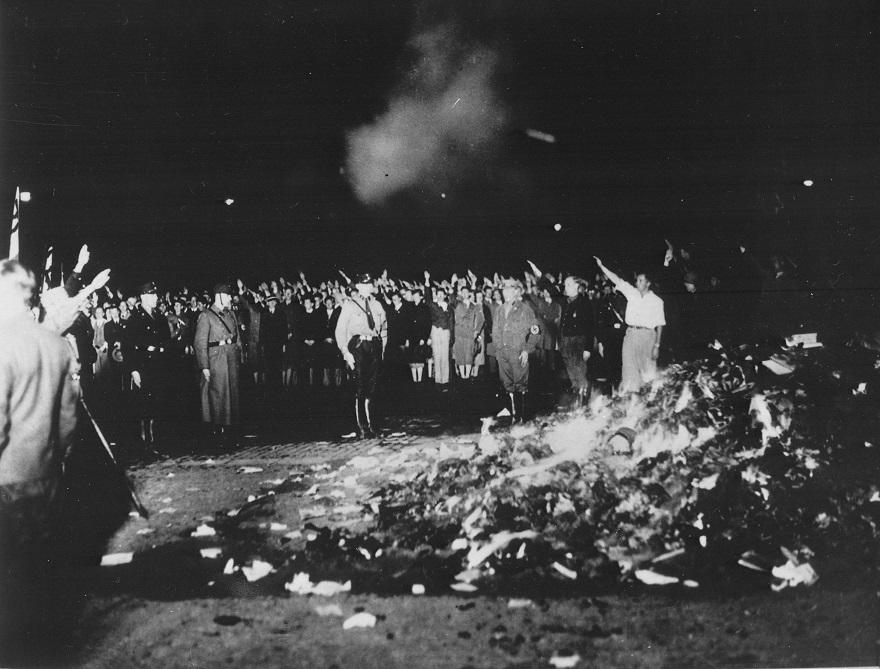
His strategy for gaining the support of the masses was undeniably effective.
He employed a rhetoric that resonated with the working class, appealed to the emotions of mothers, and ignited the patriotism of the citizens, all in a manner that made them more or less willing to comply with his directives.
Children were required to spend time in nature camps, where they were taught military and survival skills. They were encouraged to pledge their allegiance to the nation and wear uniforms that symbolized their belonging. Surprisingly, few parents raised objections, even when it became evident that these mandates were the initial stages of an extensive indoctrination process.
Farmers, who were vital to the nation's food supply, finally received the recognition and support they had long desired. Hitler ensured that they were well compensated and received lavish praise, leading to the prosperity and elevated status of the farming community. Munitions workers also enjoyed praise and rewards for their contributions.
However, for those who did not fall into the categories of farmer, munitions worker, soldier, or child, and were not members of the Nazi party, life was considerably less pleasant.
Even when the subtle turn towards terror became glaringly apparent - on Kristallnacht, when Nazis encouraged children to participate in the destruction, few people said or did anything about it.
In part, it came down to apprehension; the Nazi propaganda machine was uniquely skilled at sowing fear. Another factor was that people just wanted to live as peacefully as possible. They knew disturbing things were happening - Goebbels' propaganda machine made sure to publish concentration camp activity to intimidate the masses, implying that they, too, could be sent there.
So, people did the smart thing. They disconnected politically to focus on staying alive.
Life in Nazi Germany
Despite a vague unease, people were, at first, relatively content. After years of uncertainty, hardship, and strife, they finally had economic security: nearly every man had a job and sufficient, if not abundant, food.
Granted, citizens had to trade some civil liberties for that level of security but that seemed a small price to pay for the prospect of daily bread.
Farmers primarily benefited from Nazi policies. This demographic was ardent in supporting Nazi ideology, and their loyalty was rewarded with a substantial increase in earnings and privilege.
Those who contributed to the rearmament efforts through three worker programmes could be rewarded with special privileges such as theatre tickets, low-cost holidays and further education.
However, workers in non-armament industries did not fare so well: their wages shrunk, and work hours increased.
There were proportionately more industrial accidents in this sector, and should anyone complain about working conditions, they could be fired and blocked – stricken from employment eligibility registers. And, inevitably, face the possibility of life in a concentration camp.
Women's employment came under particular focus in Nazi propaganda, not because of their admirable performance on the production line but because Nazi leaders thought their efforts at supporting the Reich lay elsewhere...
Find a history tutor here on Superprof.

Women in Nazi Germany
Women in Nazi Germany were expected to make their lives revolve around the 3Ks – Kinder-Küche-Kirche, meaning children, kitchen and church, in that order.
From the start of the regime, female workers were persuaded to give up their jobs, stay home and bear as many Aryan children as possible.
Race was an essential criterion of the German Reich; women could even receive incentives to bear Aryan children of Schutzstaffel members – the infamous SS guards. The more, the better! Women with large broods like the Mother's Cross could qualify for the unique distinction.
Women were not to glamourize themselves at all: no makeup or elaborate hairstyles and certainly no stylish clothing.
In contrast to the attractiveness of Hitler's Eva Braun, the proclaimed ideal German woman should not keep slim: it was thought that slender women had more complications during birth – something to be avoided at all costs.
Likewise, no intellectual prowess was expected of any female other than to contribute to her children's education – and, at that, only their social education, along party lines.
However, when more hands were needed – in the workforce and the military- women were once again welcomed on the factory floor and in hospital wards (nurses, not doctors).
All children were expected to attend school as soon as they were eligible for academic education and grounding in ideological principles. That education was reinforced when they joined the Hitler Youth groups.
How does Nazi Germany compare to early American settlers' struggle for independence?
-
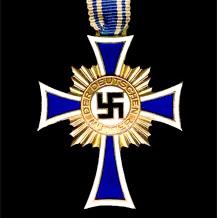
Diligent mothers with lots of children could be awarded the Mother's Cross. Source: Wikipedia.
-
Growing Up in Hitler's Germany
Children of true German blood were national treasures and generally treated well: lots of nutritious food and organised activities; indoctrination into fascist beliefs started young for the future of the Reich.
By comparison, children of other ethnicities suffered: poor living conditions, meagre rations, and segregation, even in the early days of Nazism.
Racial purity took on a sinister double meaning.
Disabled children, whether Aryan or another ethnicity, were the first targets of the regime's medical experiments and, later, the eugenics programme – after all, how can one boast a master race when some were defective? Not long after, he included disabled adults in that decree, calling the extermination programme Aktion T4.
Barring any disability, as long as you were fit and Aryan, you had little to worry about, provided you subscribed to the Nazi brand of national socialism. Adolescents were given little choice in their conscription into Hitler Youth groups; it was a join or your family suffer proposition.
By 1936, membership in the Hitler Jugend (Hitler Youths) was compulsory; three years later, 90% of all children aged ten and older wore the uniform.
The tasks and activities varied between boys, trained to become soldiers and girls, taught only to be homemakers.
Even their school curriculum was changed to reflect the priorities of the Reich:
- Biology courses reflected the inferiority of other races in support of eugenics
- History included an in-depth study of the Führer's rise to power
- Maths and chemistry were downgraded in importance
- physical fitness sessions became a daily event
- all teachers had to be Nazi party members
In short, everywhere kids turned, they were being force-fed Nazi-flavoured National Socialist idealism.
Why Didn't Anyone Do Anything?
With the entire German population buckling under authoritarian rule, it became time to purge the country of racial diversity and religions unsympathetic to the Nazi cause.
In one notable squabble with religious leaders, Hitler's desire to ban the Old Testament because of its Jewish roots culminated in more than 800 pastors of non-conforming churches being sent to concentration camps.
Kristallnacht and those death camps are the most recognised symbols of World War II.
We must never forget how, long before the Night of Broken Glass and the attempted genocide of a people, one person's efforts at destruction – of anyone who didn't belong, of progressive ideals, of free thought and civil liberty started long before those atrocities exploded onto the global stage.
Not stealthily or through subterfuge but in full view of citizens, lawmakers and the world: that may be the most disturbing aspect of Nazi Germany.
Why didn't any power do anything to stop Hitler and the Nazi annihilation machine?
Let's remember the events that drove Hitler into power: a world war followed by a profound economic depression. Germany's immediate neighbours had no resources to spare; they could barely keep themselves afloat - let alone contemplate any action in another land, political or otherwise.
As for the US and the UK, they too were overwhelmed by the economic crisis and, in the UK, there was still quite a bit of rebuilding.
While everyone was so occupied, within just a few years, Nazism had taken root and flourished. After ascending to power and establishing his cadre of minions who kept firm their grip on Germany, Hitler forged alliances with nations agreeable to his agenda.
Although enemies during the Great War, Italy, under Mussolini's leadership, found a kindred spirit in Hitler. Both embraced the same ideals and goals; Italy became the only signatory to the Pact of Steel besides Germany.
With its strong navy and military forces, Japan initially intended to sign that pact as well. However, differences soon arose; Italy and Germany wanted a mutual defence agreement against Britain and France; Japan wanted reinforcements against a possible Soviet incursion. That proved impossible for Germany, which, at the time, was on friendly terms with Soviet leadership.
Indeed, it was in coordination with Russia that the German army invaded Poland.
French leadership quickly proclaimed that Germany wanted to take over the world; Prime Minister Daladier was not wrong. However, nobody was keen to jump into another conflict. Although France had declared war on Germany two days after the Germans' invasion of Poland, until May 1940, the French limited their military response to Western Germany, while German troops were in the east, in Poland.
Other allied powers showed equal reluctance to contain the German leader.
The UK knew it had a weak military relative to Germany and France; however, its navy was the strongest in the world. And it had substantial resources.
Besides sending ships to support the Polish navy, Winston Churchill mobilised production units to support the war effort and gradually sent troops into France. The intent was to repel German advances, not hinder the German war machine or its dictator.
The other Western country with riches to spare and a strong military, the US was equally hesitant to leap into the fray. Indeed, for most of the war, Americans donated resources to support the Allied war effort.
In short, no other government or military force confronted the Hitler problem head-on with any kind of enticement persuasive enough to dissuade the dictator from his aspirations of world domination. Nor did they seem to have any appetite to.
However, once war became inevitable, practically everyone was drawn in.
-
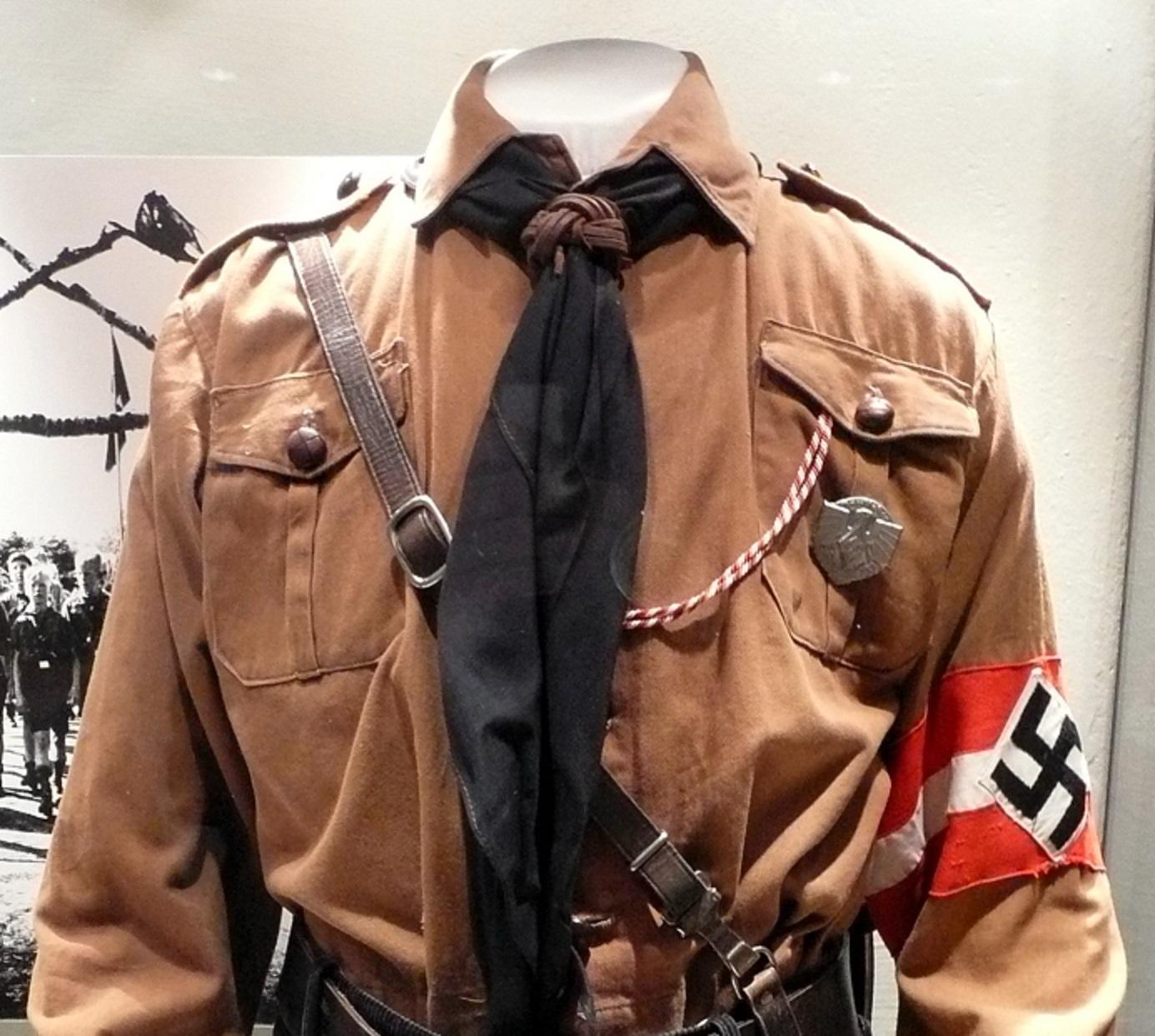
Hitler Youth male uniform shirt with logo and swastika armband Source: Wikipedia Credit: WerwilGrowing
How Germans Resisted Nazism
As mentioned, a fair portion of the German population fell happily in line with Nazi ideology. The Treaty of Versailles had provoked deep frustration in the world and strong nationalist sentiment within Germany, but President von Hindenburg seemed unmindful of the national mood. Indeed, as the Weimar Republic struggled to find footing, people's anger boiled over to outrage.
Hitler not only mirrored their sense of outrage, but he also fanned its flames. He touted their unheard grievances - the shame fostered on them by the international community and their hardscrabble life, as burdens he carried himself. He lifted them and told them they were more worthy than the people of other nations, especially those who mocked German values and heritage. And he promised them everything they wanted.
Indeed, he promised them the world.
After having survived the war and endured international humiliation, and now facing an uncertain future, it's understandable that so many would willingly champion the fiery young leader's rhetoric, embrace it and make it their own.
The most astute political move Hitler made was empowering the people. He seldom, if ever, encouraged the German folk to seek their place in their community and on the world stage; he convinced them that Germans were the master race that must assert dominance.
Those enthused by such claims couldn't get enough of him.
Those ideas, first expressed abstractly and, later, more concretely, started making some people worried. There had just been a recently fought and lost war that had tried to establish dominance; were we going to do it all again, and so soon?
Intellectuals and religious leaders started planning subversion. However, it wasn't until Herr Hitler was well and truly entrenched into his role as a dictator that several German citizens - and, later, military personnel turned plans into action.
Military leaders like Wilhelm Franz Canaris, head of the Defence Ministry and Klaus von Schaffenburg, an elite officer within the Wehrmacht, worked from inside Hitler's circle to bring him down (both were discovered and executed).
Religious leaders of several denominations, from Lutheran to Catholic, spoke out against the regime and encouraged citizens to rise against the ubiquitous terror squads roaming the streets. They also advocated for shielding children from Nazi ideology. Some such leaders, Bernhard Lichtenberg and Martin Niemöller, were sent to concentration camps. Herr Lichtenberg died on his way to Dachau.
And then, there were future leaders: Willi Brandt, who would become the Chancellor of West Germany, was forced to flee the country after leading resistance efforts against Hitler's regime. Konrad Adenauer would become the country's first Chancellor after the end of the Second World War; he was twice arrested for openly expressing views contrary to the regime's.
But for the most part, people were terrified.
When things got noticeably bad, they witnessed the abuse, removal and murder of former neighbours, favoured merchants and long-time friends. They knew that the slightest provocation - or no provocation- could also earn them a trip to the camps. In most cases, they had elderly and children to care for; they couldn't afford even the appearance of non-compliance.
Still, many committed random acts of civil disobedience - sheltering people, guiding them to safety and giving them food. Most of those stories have been lost to history.
So, we can't say that the German people stood idly by. In the end, these small subversions made a world of difference - if only to lone beneficiaries.
Now, learn about more global events that changed the economic and political climate...
Summarise with AI:

